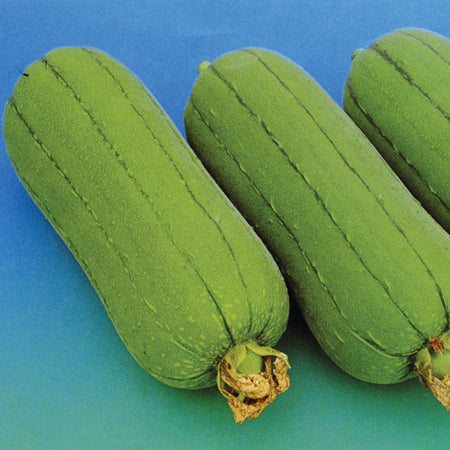SEVEN HAPPINESS LUFFA
Product Description:
| Soil Temp for Germ | 65–85°F |
| Seed Depth | 1" |
| Days to Emergence | 5–10 |
| Soil Temp for Transp | 60°F |
| Plant Spacing | 3–4' |
| Row Spacing | 4–6' |
| Fertilizer Needs | High |
| Minimum Germination | 75% |
| Seeds per Gram | Listed per variety |
| Seed Life | 3 years |
Lagenaria siceraria and cucurbita pepo True gourds belong to the genus Lagenaria, and the species siceraria. The different varieties of L. siceraria do not cross with any other cucurbitaceae. All gourds are vining varieties and can grow to 15 feet. They are often tiered along a trellis or fence to save space. Most are grown for their mature shell and unique shapes.
Days to maturity are calculated from date of direct seeding.
Culture
• Requires uniform irrigation totaling 15-20 inches of water during the growing season
• Bee attractant flowers or beehives will help yields — misshapen or non-developing fruit is often the result of poor pollination
Direct Sowing
• Plant after frost danger when soil warms to 65°F
• Work in shovelful of compost and 1/2 cup TSC's Complete fertilizer into hill
• Keep soil evenly moist but not wet as too much moisture causes seed to rot
• Bush varieties: sow 3-4 feet apart
• Vining varieties: sow 4-5 feet apart
Transplanting
• Start indoors 3-4 weeks prior to anticipated transplant date in 4 inch pots
• Work in shovelful of compost and 1/2 cup TSC's Complete fertilizer into hill
• Transplant carefully as to not disturb roots
Insects & Diseases
• Common insects: Cucumber beetles and squash bugs
• Insect control: Pyrethrin
• Common diseases: Various wilts, leaf spots mildews, and various viral diseases
• Disease prevention: 3-4 year crop rotation, and fungicide applications
Harvest & Storage
• Leave on vine until fully mature, rinds should be firm
• Can tolerate a light frost, but must be protected from a hard frost
• Dry gourds: Wash gently in a solution of 10 parts water and 1 part bleach, carefully removing all dirt, then store in a warm, dry location






